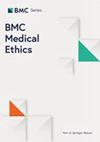埃及临床研究法的伦理比较分析
IF 3
1区 哲学
Q1 ETHICS
引用次数: 0
摘要
在本研究中,我们采用伊曼纽尔等人提出的伦理框架,并将其与各种国家和超国家法律进行比较,研究了埃及新临床试验法的伦理影响。这一分析至关重要,因为埃及被认为是一个高增长的医药市场,已成为一个具有吸引力的临床试验地点,为在一个人口众多、医疗基础设施健全、以治疗无效患者为主的国家实施生物伦理法规提供了启示。我们将埃及的法律与瑞典和法国的法规(包括欧盟临床试验法规)进行了比较分析,考虑到了人类受试者研究的伦理标准,并采用了定性内容分析的定向方法来研究法律法规。这项研究涉及广泛的同行审查、频繁的汇报会以及与具有相关国际法律专业知识的法律专家的合作,以确保对法律进行严格的分析和解释。在七项不同原则(社会和科学价值、科学有效性、公平选择参与者、风险收益比、独立审查、知情同意和尊重参与者)的评分方面,埃及、法国和欧盟的法规得分相当。具体原则(社会价值、科学价值和公平选择参与者)很难直接确定,因为某些法规更多体现的是 "隐含 "原则,而不是明文规定的原则。这项分析通过与法国、瑞典和欧盟的法规进行比较,强调了埃及与伊曼纽尔等人概述的国际公认伦理原则的一致性,同时强调埃及亟需不断完善其伦理法规,以保障参与者的保护和研究的完整性。所发现的关键问题包括有必要澄清研究中的社会价值概念并使之标准化,以及对伦理审查委员会的专业知识和公正性的担忧,这些都为加强埃及及其他国家的研究伦理提出了更广泛的议程。本文章由计算机程序翻译,如有差异,请以英文原文为准。
A comparative ethical analysis of the Egyptian clinical research law
In this study, we examined the ethical implications of Egypt’s new clinical trial law, employing the ethical framework proposed by Emanuel et al. and comparing it to various national and supranational laws. This analysis is crucial as Egypt, considered a high-growth pharmaceutical market, has become an attractive location for clinical trials, offering insights into the ethical implementation of bioethical regulations in a large population country with a robust healthcare infrastructure and predominantly treatment-naïve patients. We conducted a comparative analysis of Egyptian law with regulations from Sweden and France, including the EU Clinical Trials Regulation, considering ethical human subject research criteria, and used a directed approach to qualitative content analysis to examine the laws and regulations. This study involved extensive peer scrutiny, frequent debriefing sessions, and collaboration with legal experts with relevant international legal expertise to ensure rigorous analysis and interpretation of the laws. On the rating of the seven different principles (social and scientific values, scientific validity, fair selection of participants, risk-benefit ratio, independent review, informed consent and respect for participants) Egypt, France, and EU regulations had comparable scores. Specific principles (Social Value, Scientific Value, and Fair selection of participants) were challenging to directly identify due to certain regulations embodying 'implicit' principles more than explicitly stated ones. The analysis underscores Egypt's alignment with internationally recognized ethical principles, as outlined by Emanuel et al., through its comparison with French, Swedish, and EU regulations, emphasizing the critical need for Egypt to continuously refine its ethical regulations to safeguard participant protection and research integrity. Key issues identified include the necessity to clarify and standardize the concept of social value in research, alongside concerns regarding the expertise and impartiality of ethical review boards, pointing towards a broader agenda for enhancing research ethics in Egypt and beyond.
求助全文
通过发布文献求助,成功后即可免费获取论文全文。
去求助
来源期刊

BMC Medical Ethics
MEDICAL ETHICS-
CiteScore
5.20
自引率
7.40%
发文量
108
审稿时长
>12 weeks
期刊介绍:
BMC Medical Ethics is an open access journal publishing original peer-reviewed research articles in relation to the ethical aspects of biomedical research and clinical practice, including professional choices and conduct, medical technologies, healthcare systems and health policies.
 求助内容:
求助内容: 应助结果提醒方式:
应助结果提醒方式:


